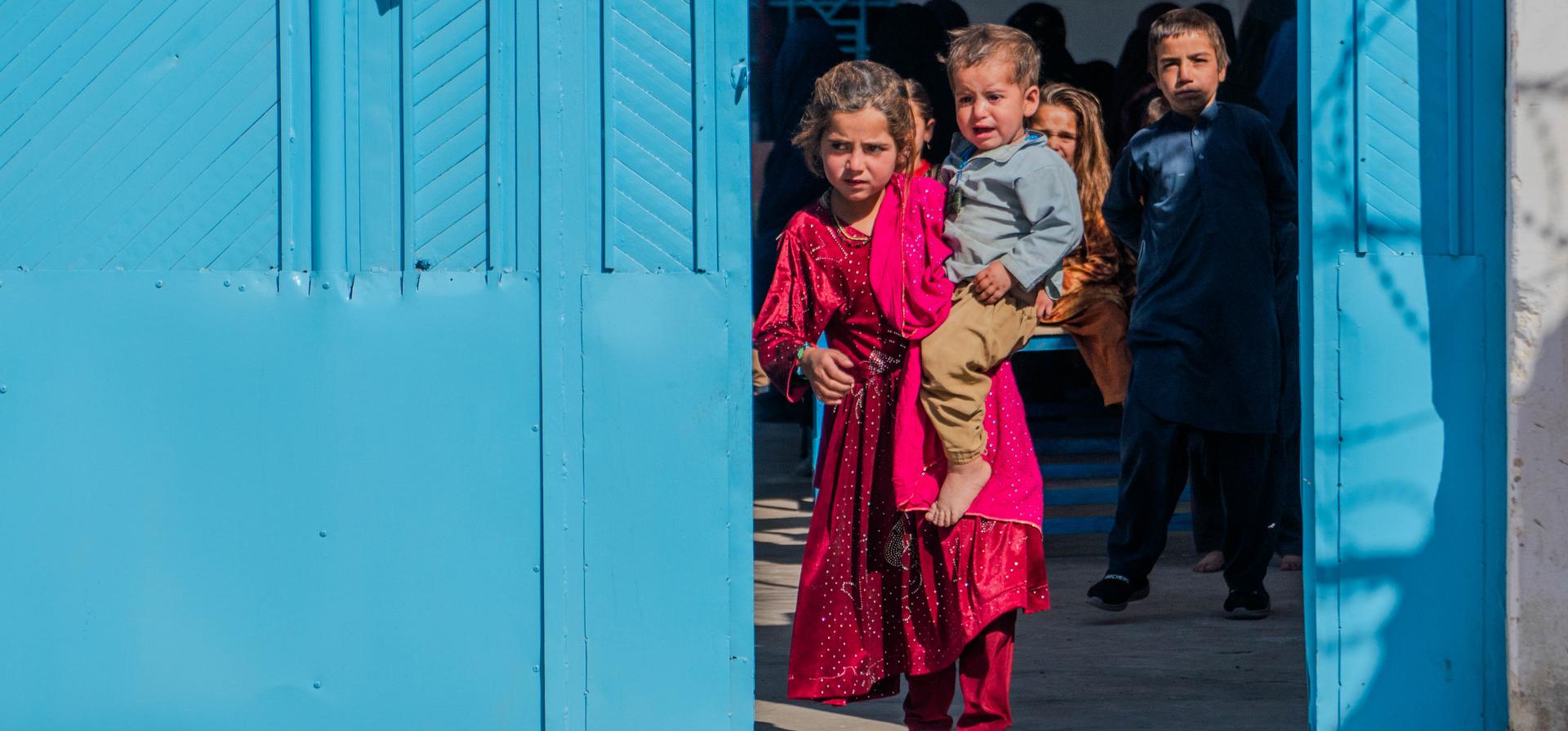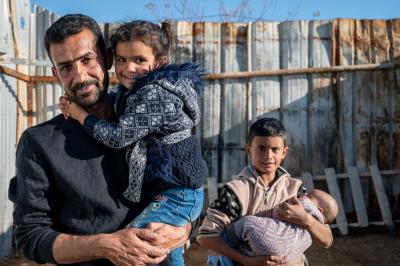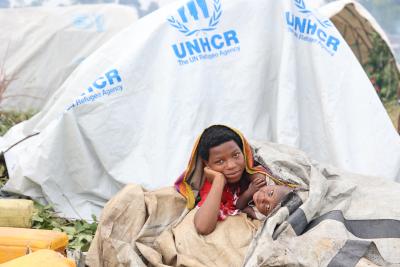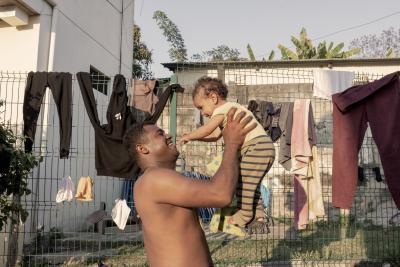Underfunding
UNHCR highlighted the impact of underfunding on forcibly displaced and stateless people by publishing two reports, in June and September 2023. The reports focused on 13 large operations which had 36% of the world's forcibly displaced and stateless people.
For most operations, from the time the alert was first sounded until year-end, the funding levels increased by no more than 14%, with the exception of Chad (30%), Central African Republic and Egypt (both by 19%). It is also worth noting that the May funding levels for South Sudan, Sudan, and Chad were based on a lower budgetary requirement, which were then amended in August through a Supplementary Budget. This data indicates that overall, fundraising efforts had the most impact on countries that were part of the Sudan emergency.
Read more on the underfunded report
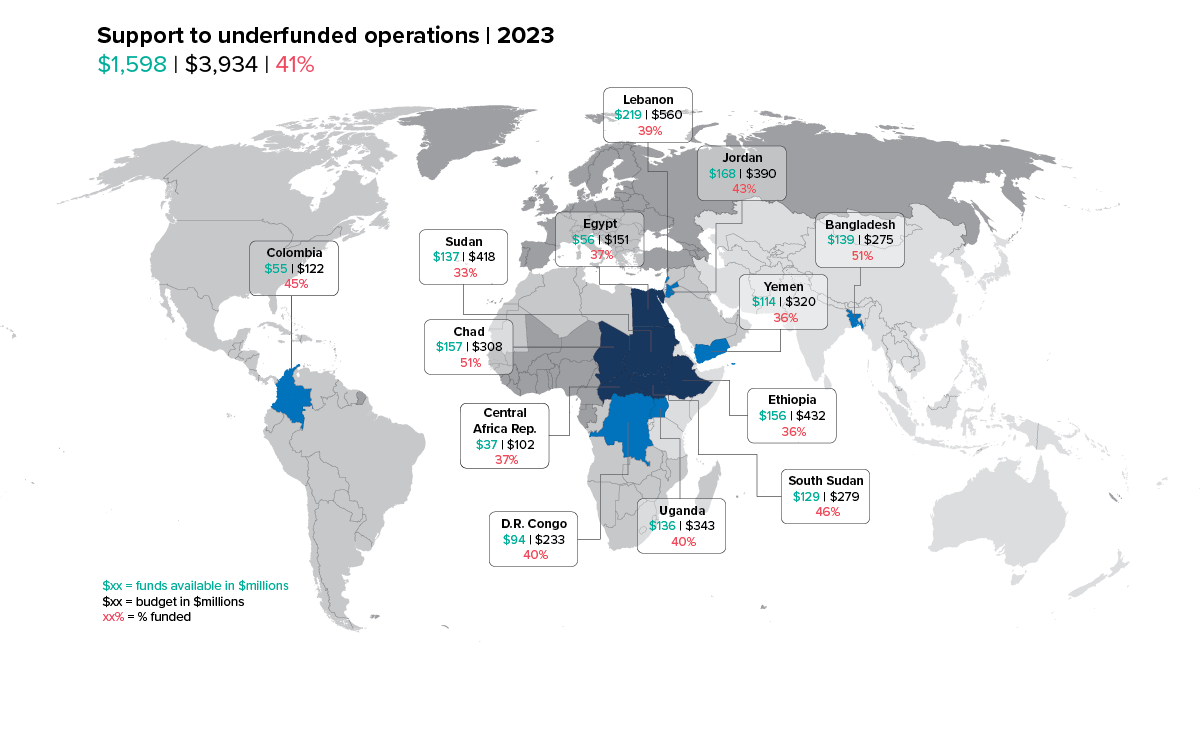
The specific fundraising focus on these 13 operations complemented overall fundraising efforts for the whole organization, which was done through a sustained outreach with both the public sector and the private sector at all levels. Unfortunately, the funds available to UNHCR at the start of the fourth quarter were only equivalent to 44% of its total budget of $10.929 billion (compared to 50% at the same time in 2022). At that time, UNHCR signalled that at an absolute minimum, it would still need to raise another $650 million before the end of 2023 to avoid devastating cuts.
One month into the fourth quarter, UNHCR had still not received firm assurances from donors that it would receive more funding before the end of the year. In this context, the organization had to undertake a range of cost-saving measures. For example, non-essential activities – such as with regards to travel, workshops, and other events, as well as procurement and partner agreements – were deferred to 2024.
To the extent possible, efforts were made to minimize the impact of these cost-saving measures on forcibly displaced and stateless people. Inevitably, operations were required to prioritize more robustly, and simply had to do less with less.
As a result of this robust prioritization and deferrals, as well as funding that arrived during the last weeks of the year, UNHCR was able to cover all the commitments it had made during the year. However, while the amount of voluntary contributions received in 2023 was higher than that of 2021 ($4.637 billion), this increase was insufficient to meet the additional needs resulting from the steep rise in the number of forcibly displaced and stateless people. This resulted in a drop in per capita funding – defined as income over the total population of people in need – from $57 to $47 during this same period.
Explore other funding sections
